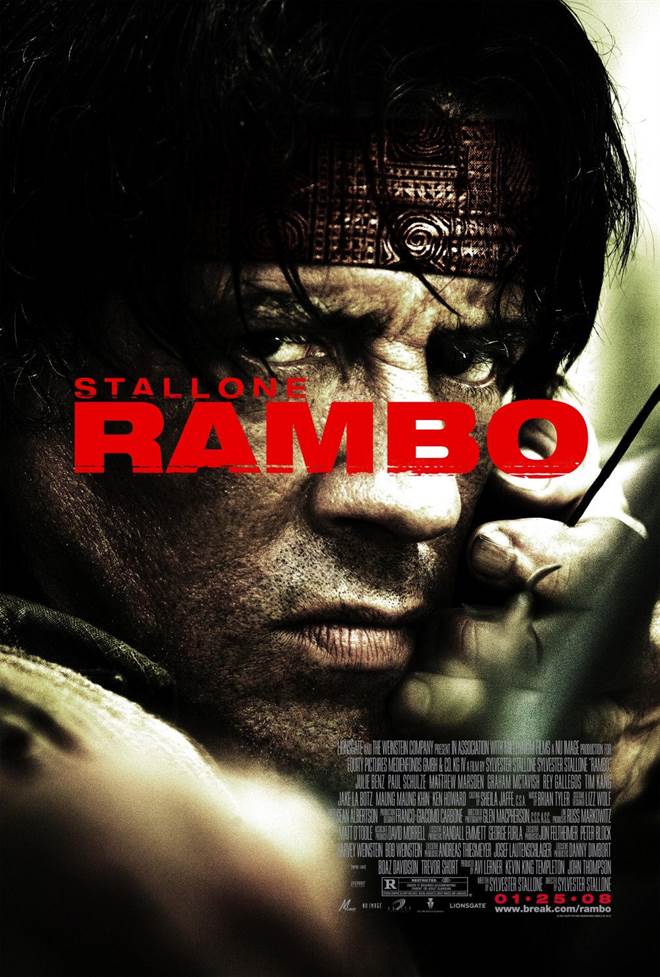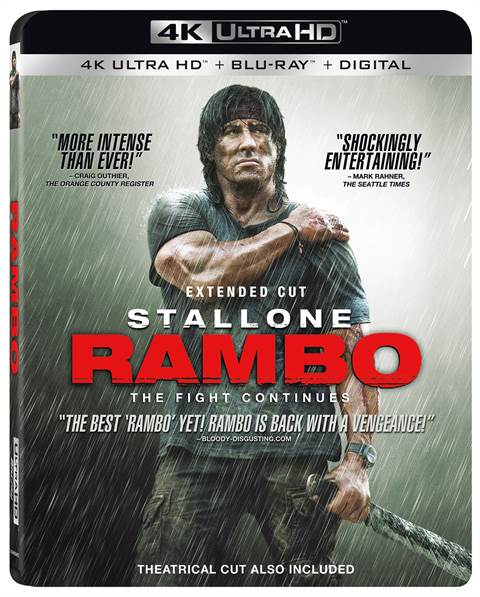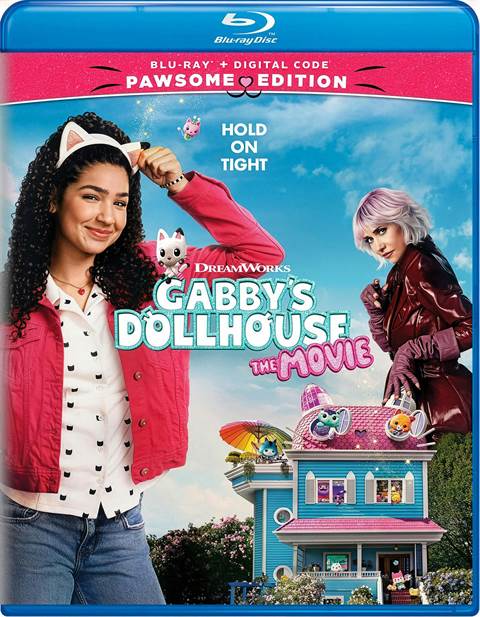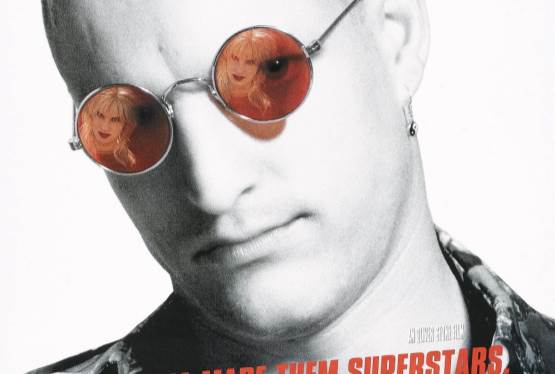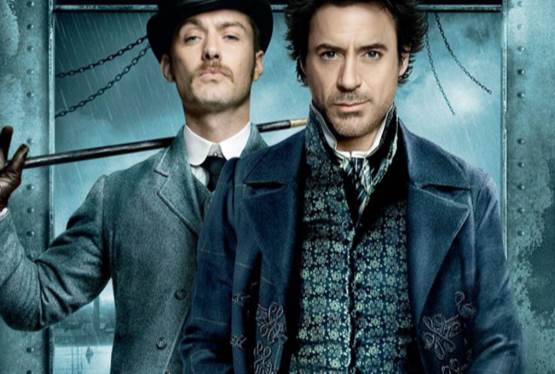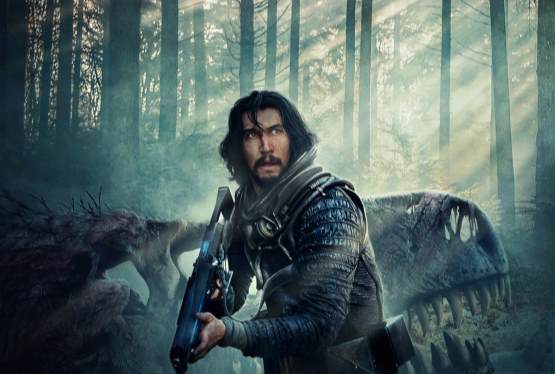In most cases the hero has been (or will be) abandoned by a weak American government that has turned its back on both the main character and its own victims of war (POWs). The tropes often involve guerrilla tactics (which were historically more closely associated with the Viet Cong than American soldiers), the use of land (mud in Rambo 2's iconic eye-opening scene, and water (in Missing In Action 2 and Uncommon Valor), and the mountains (Red Dawn). The characters themselves are also "primitive" (Ramo's favored weapon is the knife, followed by the bow and arrow. Norris kills with his hands when he can't get an M60).
Today things are less black and white: the government is no longer evil in action movies--perhaps ineffectual, perhaps riddled with incompetence or a few "bad apples" (Jason Bourne will get support if the whole sordid story were to come out). The enemies, when they are not government agencies, are often stateless terrorists, and the heroes are masters of technology as well as hand-to-hand combat (and they are rarely as muscle-bound as Sylvester Stallone). I think this is because the audiences themselves (i.e. us) are less sure of where we stand with respect to our nation as a whole ... and our enemies (Russians: Friend or Foe? How 'bout Pakistan?).
When we get to Rambo 4 (released in the UK as John Rambo--intentionally reminiscent of Sly's other recent film Rocky Balboa) the question will be whether it cleaves to the old--or the new. Who will Rambo fight? Who are the good guys? Is he being used? Is there a cover-up? Is he still invincible or has age and years brought him down to human levels?
Rambo asks the question "What happens if the deadliest soldier alive came out of retirement to head up river to Burma where government soldiers are sadistically slaughtering innocent Christian towns-folk?" The answer is John Rambo will kill a whole bunch of people. This isn't news. But it does tell us that Rambo turns the clock back to the 80's: whatever else it does, it doesn't sell out its legacy. In fact, it builds on it:
Kills Per Minute:
* Rambo: First Blood (1982): 0.01
* Rambo: First Blood Part II (1985): 0.72
* Rambo III (1988): 1.30
* Rambo IV (2008): 2.59
By contrast, Red Dawn, who's collector's edition DVD includes an actual "Carnage Counter" to display the body count clocks only 2.23 kills per minute (it should also be noted that Red Dawn, an intensely pro-gun, pro-America movie includes an actual scene where the invading soviet troops go to a sporting goods store and look up BATF Form 4473 by name to see who is a registered gun owner. When American forces chose Red Dawn as the code-name for the Saddam capture operation, the director, John Millius, was deeply flattered. Perhaps the irony of the Americans being the invading force against a group of insurgent locals who don't play by the rules was lost on him?).
So Rambo is violent--but is that the whole story? As a child of the 80's, I don't think I can honestly say that it is. Rambo is an iconic action hero. In his time he was an incarnate expression of aggressive wish-fulfillment--an avenging angel against forces we, the audience, were powerless to fight. He took on the Vietnam-hating establishment in First Blood. The Russians in First Blood 2, and again--teaming with the Afghans, in Rambo 3. He is a just person: he doesn't kill without cause. He is self-controlled until pushed. He is not cruel nor explicitly vengeful. He mostly just wants to be left alone. He, like Caesar refusing the crown three times for show, has to be convinced over and over to take any action--and when he does, it is explosively decisive.
Rambo, the movie, gives us an older but still granite-faced Stallone who has the thousand-yard-stare and panther-like reflexes. It pits him against a barbaric Burmese commander played by actual resistance fighter Sai Mawng. This guy kills people for fun, molests boys, and has his men rape and slaughter children. One of the most unlikable villains in cinema, he thankfully does not have any real lines (he speaks no English in a refreshing turn of events--I was waiting for him to be Oxford educated). His show-down with Rambo goes exactly like it oughta.
I want to note here that the movie doesn't just go for solider-on-soldier violence. As I said above, women are raped, children are executed. Captives are shot for sport. Some of this is mercifully short but some of it isn't. The movie has a "red trailer" (suitable for adult audiences only) and it was believed that there was no way it could be un-cut and maintain an R-rating. It wasn't edited though: Rambo rips a person's throat out on camera--and it actually takes longer in the film than in the short cut. This is a hyper-violent movie that is very specifically calculated to provoke a visceral reaction in the viewer. Director Stallone does his job ... well enough.
Rambo isn't the only character on screen. He's teamed up with some mercenaries who are both good at what they do, tough, and nowhere near up to the level of JJR. Together they are trying to rescue some captured religious social workers who believe that killing is bad (m'kay) and that doing good without weapons is how you change the world (when Rambo asks if they are carrying weapons and is told "of course not" he tells them, grimly, "you aren't changing anything"). The movie glorifies violence to an almost religious degree (after saving the female missionary from rape and murder at the hands of pirates the lead missionary tells Rambo that "he's going to report that"--report it to whom!?). It draws a distinct line between those who do (Rambo) and those who try (the ineffectual missionaries handing out medicine and reading sermons).
It is unquestionably a message movie and the message is this: being soft doesn't work. That's the 80's in a nut-shell right there. In today's world it's an oversimplification--but in Myanmar the movie is banned (with lashes from a cane assigned to video pirates) and the slogans from it ("Live for nothing or die for something") have become battle cries for the people who don't just get up and head to the casting trailer after being "killed."
I think in that light it's hard to judge it. If the guys who are doing the real fighting like it--if the guys who are evil in it cane people for watching it--then even if it gives us a black-and-white simplified 80's action hero, an ultra-violent 91 minutes of atrocity, carnage, and finally triumph--even if its just a modern-day military fairy tale, I think it's maybe doing something right after all.
For American audiences, though, it's an exercise in watching Rambo kill people and there it excels. The movie is fast-enough-paced, relentless in its violence, sometimes shocking in its execution, and state of the art in its special effects. It is a grim affair to be certain--and it lacks any sophistication in its construction and its message--but then again: this is the 80's. Ambiguity is still a decade away. Maybe by the time Sly is 80 we'll get an Unforgiven in the First Blood universe but that day is not today.
Today Rambo is still just blowing things up.

